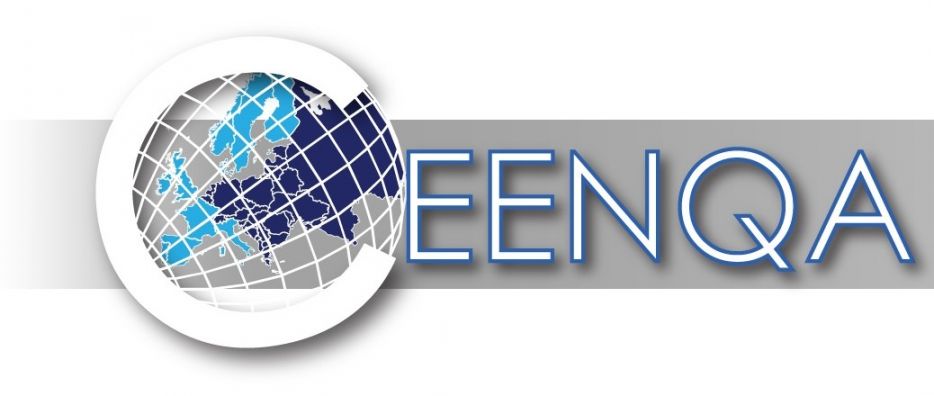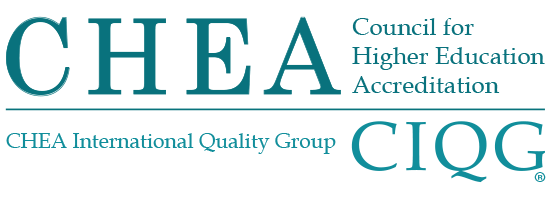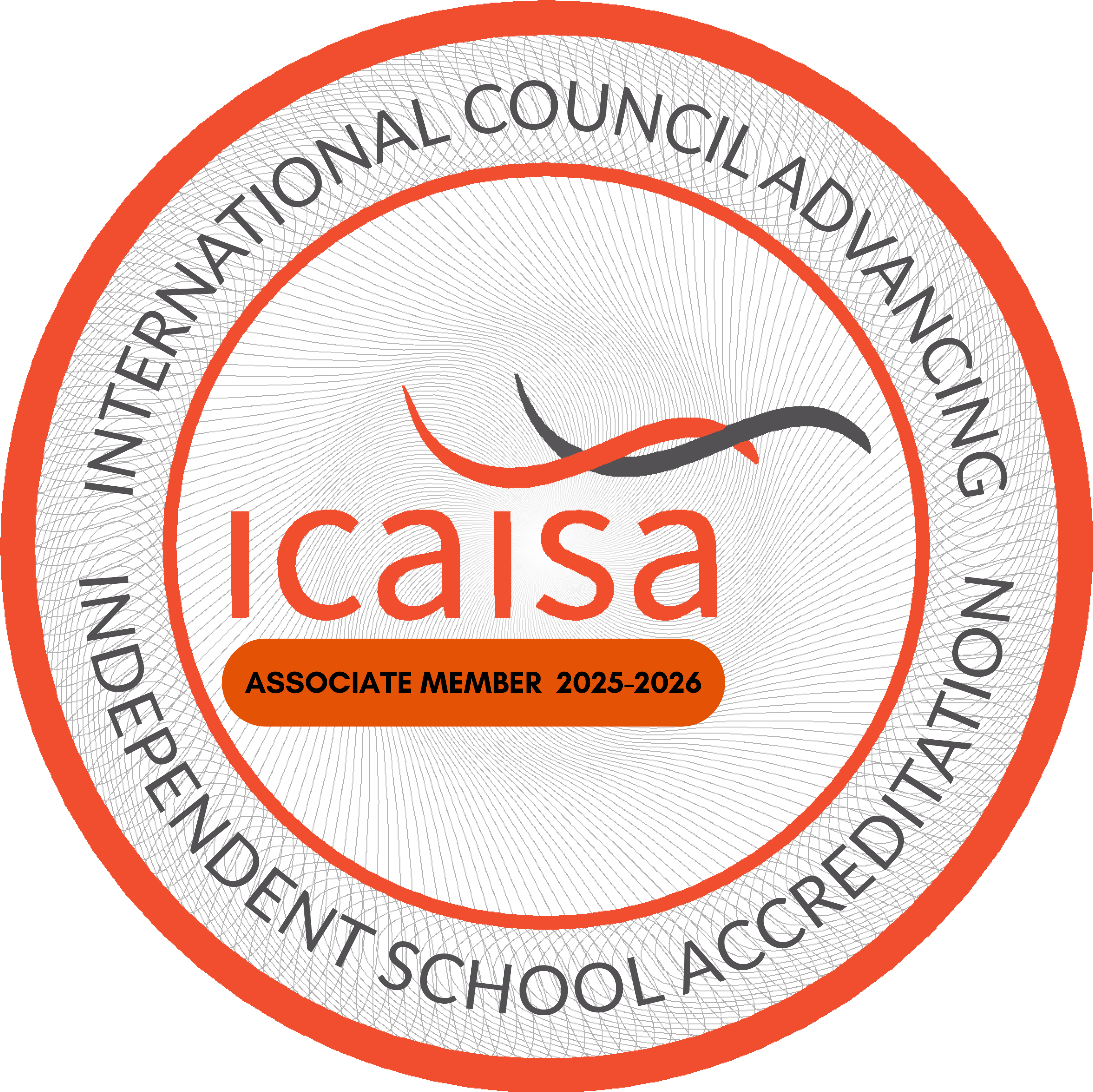ACCREDITATION OF HIGHER AND POSTGRADUATE EDUCATION
The IQAA accreditation standards are developed in accordance with the Standards and Guidelines for Quality Assurance in the European Higher Education Area (ESG) and are intended for internal quality assurance of educational institutions. The accreditation procedure also takes into account state regulatory documents and international standards.
The IQAA accreditation procedure consists of 4 stages:

- submission by the educational organization of an application for accreditation to the Agency with a brief description of the organization's activities and copies of the general license;
- signing of an accreditation agreement between IQAA and the educational organization. The contract specifies the rights and obligations of the parties, the cost of the procedure, the terms of accreditation, including the stages of the process. In the case of state organizations, it is possible to sign the contract only after conducting the public procurement procedure on the electronic portal;
- appointment of a coordinator, preliminary visit to the organization, if the Agency is working with him for the first time;
- conducting training seminars for the organization's working groups on the preparation of the self-assessment report and the implementation of the accreditation procedure;
- conducting a self-assessment procedure by an educational institution, compiling a self-assessment report in accordance with IQAA standards and criteria;
- submission of the first version of the self-assessment report and technical expertise. The results of the examination are sent to the university, if necessary, the self-assessment report is finalized by the educational organization;
- submission of the final self-assessment report and its annexes to the Agency;
- preliminary audit during institutional accreditation.

- IQAA forms a competent group of experts (auditors), which includes representatives of educational institutions of Kazakhstan, an employer, a student and an international expert;
- the group is formed in parallel during the examination of the self-assessment report;
- the agency informs the educational institution about the composition of the external audit group. If the educational organization suspects a conflict of interest among any of the auditors, the organization has the right to apply to the Agency to replace the expert (auditor), attaching a written reasoned explanation;
- the coordinator sends the self-assessment materials and methodological support several weeks in advance to the members of the expert group to prepare for the external audit;
- the coordinator conducts a preliminary webinar for the expert group in order to train experts and discuss organizational audit issues, and immediately before the start of the visit to the educational institution - a briefing;
- external audit to the educational organization (3 days). An external audit is conducted to assess the reliability of the information provided in the self-assessment report, the actual state of affairs in the organization;
- the expert group generates an external evaluation report (with comments, recommendations for improvement, and good practices), which is sent to the coordinator;
- the IQAA coordinator sends the received report of the expert group on the evaluation of the organization's activities to the educational organization to eliminate factual inaccuracies, if any;
- if necessary, the complaint procedure is available to educational institutions.
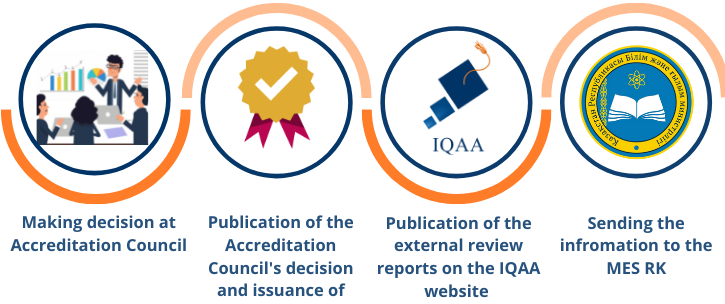
- the Department for checking the reports of the EEG and PAM, together with the expert council, checks and edits the external audit report and forms an accreditation conclusion for the Accreditation Council;
- based on the self-assessment report, the external audit report and the conclusion, the Agency coordinator prepares a presentation for the Accreditation Council;
- holding a meeting of the IQAA Accreditation Council and making a decision on the accreditation of the educational institution. The Accreditation Council independently makes decisions based on the self-assessment report and the external audit report, presentation and conclusion. However, taking into account the opinions of the members of the Accreditation Council, additional information and evidence base for the educational institution, the assessment may be changed;
- informing the educational institution and the members of the expert group that conducted the external audit about the decision on accreditation;
- if necessary, the appeal procedure is available to universities;
- publication of the external audit report and accreditation results on the Agency's website. Inclusion of an accredited educational organization in the IQAA register on the website "Register of Decisions and Reports";
- publication of the external audit report in the DEQAR database;
- sending information to the Ministry of Education and Science of the Republic of Kazakhstan for inclusion of an accredited university in the relevant National Register.
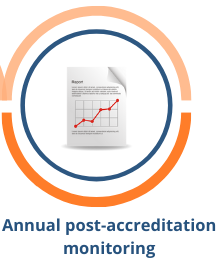
- Implementation of regular post-accreditation monitoring by the Agency.






 Ministry of Science, Higher Education and Innovation of the Kyrgyz Republic
Ministry of Science, Higher Education and Innovation of the Kyrgyz Republic


